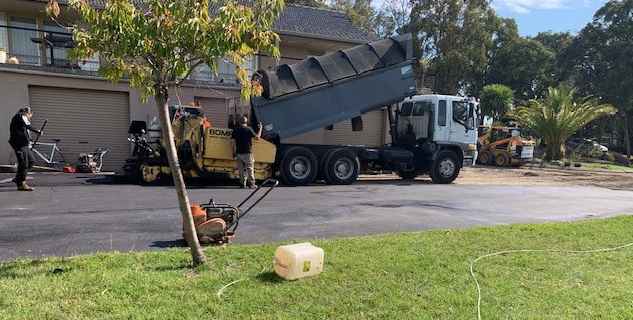Asphalt hardstands are essential for many commercial, industrial, and residential applications. Whether used for warehouses, storage facilities, parking lots, or driveways, these hardstands provide a durable, stable surface that can support heavy machinery, vehicles, and storage equipment. However, to ensure the longevity and effectiveness of an asphalt hardstand, proper grading is crucial. Grading is the process of adjusting the elevation, slope, and surface of the area before applying the asphalt. In this article, we will explore how grading improves the performance of asphalt hardstands, contributing to their durability, safety, and overall efficiency.
1. Improved Drainage and Water Management
One of the most important aspects of grading is ensuring proper drainage. Asphalt hardstands are often exposed to the elements, with rainfall being a key factor that can cause surface damage over time. If water is allowed to pool on the surface, it can seep into the asphalt, leading to cracks, erosion, and the formation of potholes. Grading the surface before laying asphalt helps to direct water flow away from the hardstand by creating a slight slope or gradient. This ensures that rainwater is directed to drainage systems or areas where it can flow safely without pooling or causing surface damage.
Without proper grading, water can accumulate in low spots, compromising the integrity of the hardstand. By ensuring that water flows off the surface effectively, grading helps to protect the asphalt, reducing the risk of long-term damage and costly repairs.
2. Enhanced Stability and Load Distribution
Grading helps create a stable foundation for the asphalt hardstand. Without proper grading, the surface may be uneven, leading to weak spots that are susceptible to cracking or deformation under heavy loads. When the underlying surface is properly graded, it ensures that the weight of vehicles, machinery, and stored goods is evenly distributed across the hardstand. This helps prevent pressure points that could cause the asphalt to crack, sink, or degrade more quickly.
A well-graded surface provides the necessary support for heavy traffic areas, reducing the chances of surface failure and prolonging the life of the hardstand. This is particularly important for commercial and industrial facilities that rely on the hardstand to withstand constant vehicular traffic or the weight of heavy machinery.
3. Preventing Surface Damage and Deformation
When an asphalt surface is not graded properly, it can result in surface irregularities that lead to cracking, rutting, or other types of deformation. These imperfections can accumulate over time, making the surface more prone to damage. Grading the surface before applying asphalt allows for the creation of a smooth and even base, reducing the risk of these problems occurring. The grading process ensures that there are no depressions or high points that could cause water pooling or uneven wear on the surface.
By eliminating surface irregularities, grading helps to maintain the performance of the asphalt over time. This means fewer repairs and a longer-lasting, more reliable hardstand.
4. Optimising the Asphalt Thickness
Grading also plays an important role in ensuring the correct asphalt thickness is applied to the surface. Asphalt thickness needs to be uniform across the entire surface to ensure optimal performance and durability. If the grading process is not done correctly, the thickness of the asphalt can vary, resulting in areas that are more susceptible to wear and tear. For instance, if the asphalt is too thin in certain areas, it may not provide enough protection against heavy traffic or harsh weather conditions.
With proper grading, contractors can ensure that the asphalt is applied to a consistent thickness, providing uniform protection and reducing the need for premature resurfacing or repairs.
5. Increased Lifespan and Reduced Maintenance Costs
Proper grading is a key factor in enhancing the lifespan of your asphalt hardstand. By improving drainage, load distribution, and surface stability, grading helps the asphalt withstand the pressures of daily use, reducing the frequency of repairs and the need for resurfacing. The result is a more durable surface that performs well over time, saving you money on ongoing maintenance costs.
By preventing issues such as water damage, cracking, and uneven wear, grading ensures that your asphalt hardstand will last longer, providing a better return on investment in the long run.
Conclusion
Grading is a critical component of the asphalt surfacing process that directly impacts the performance, durability, and longevity of your asphalt hardstand. Proper grading ensures that water is directed away from the surface, load is distributed evenly, and the surface remains stable and smooth. This helps to prevent damage, reduce maintenance costs, and extend the lifespan of the hardstand.
If you’re planning an asphalt hardstand project in Griffith or the surrounding areas, Griffith Road Tek offers expert grading and surfacing solutions. Our experienced team is committed to providing high-quality asphalt services that are tailored to your needs. Contact us today to learn how we can help optimise your asphalt hardstand with professional grading and surfacing services.’
Call us on: 02 5926 2530
Click here to find out more about Griffith Road Tek
Click here to complete our contact form and see how we can help with your Asphalt and Bitumen Surfacing needs.

